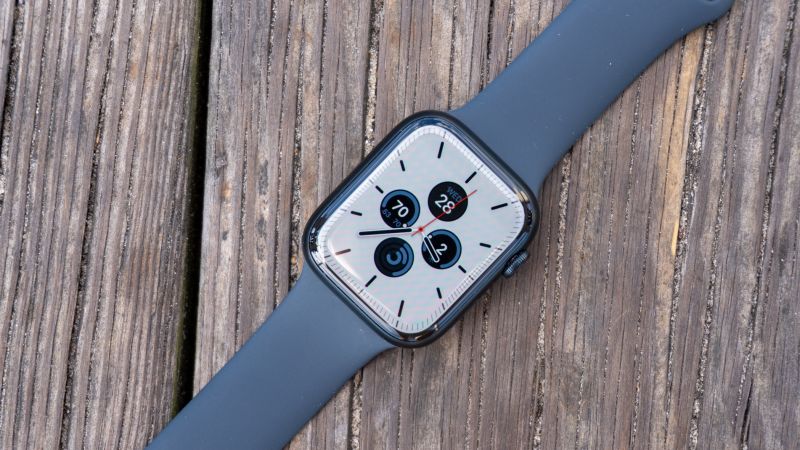
Apple Watch Series 8 review: The best gets a little better
The new Apple Watch Series 8 is here, and we’ve spent a week and a half checking it out to see if it’s worth upgrading to.
The Series 8, by all accounts, is a very minor update. There are some noteworthy upgrades here — Apple strapped a temperature sensor and car crash detection to it, and it’s powered by watchOS 9. But other than that, this update will feel instantly familiar to anyone who’s seen a Series 7. It keeps the same design, color options and price at $399. This watch isn’t for everyone, but if you have an Apple Watch that’s older than three or four years, you’ll dig what the Series 8 has going for it.
Let’s dive in and determine whether the Series 8 is for you.
A subtle upgrade to the best smartwatch
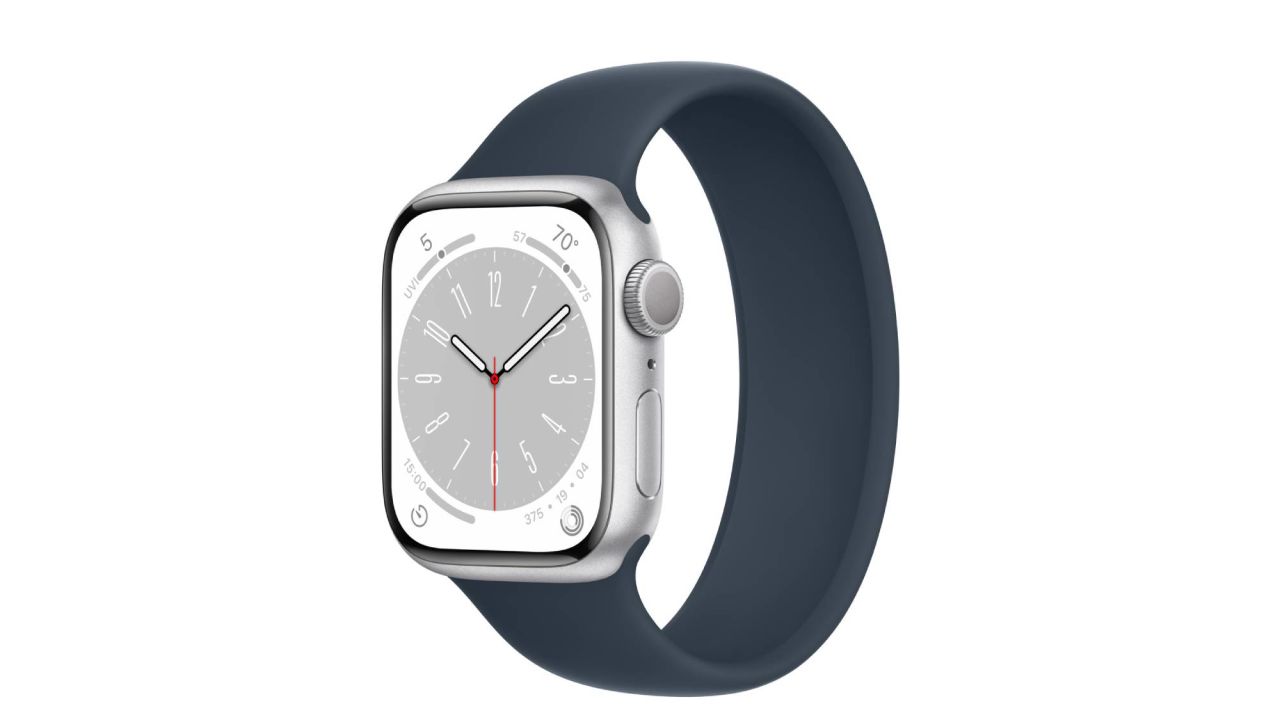
The Apple Watch Series 8 is the new Apple smartwatch to get for first-time buyers or anyone coming from a Series 4 or older. Everyone else can hold out for a more meaningful upgrade.
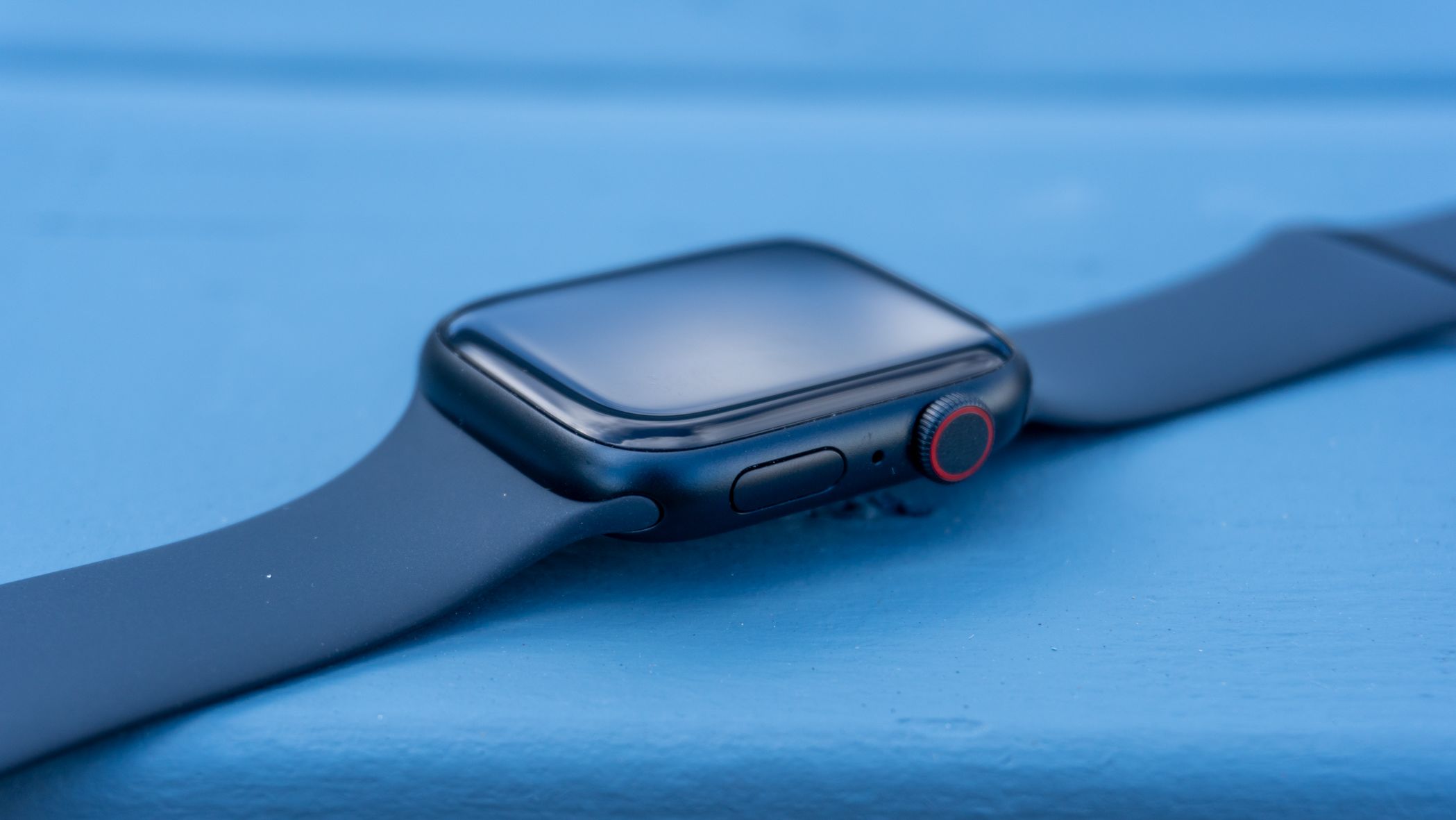
Some may be disappointed by how similar the Apple Watch Series 8 looks and feels to the Series 7, but Apple has nearly perfected its formula for a smartwatch, and there’s no need to fix something that isn’t broken.
The Series 8 still comes in 41mm and 45mm case sizes, which means all of your old bands will work with whichever model they’re designed for. They even ship in the same three colors: Midnight, Starlight and silver. You also have a few stainless steel options, a ton of bands to pick from and an optional upgrade to a watch with cellular so you can leave your iPhone at home.
The screens are also the same, nearly reaching the edges of each different Series 8 model with rounded sides. You also get the same level of durability as the Series 7 with a crack-resistant screen, IP6X dust resistance and WR50 water resistance (meaning it can survive at up to 50 meters underwater). It’s not as durable as the new Apple Watch Ultra, but it’s still enough for everyday use.
It’s a well-rounded formula that doesn’t have anything inherently wrong with it. The screen is beautiful to look at, it gets up to 1,000 nits bright and is great outdoors, the form factor is slim and doesn’t get in the way and its weight makes it easy to forget about when working out. Would it be nice to see a design that takes on more drastic changes? Sure, but it’s not necessary until Apple has a breakthrough in smartwatch design that it can’t help but ship. Until that happens, the Series 8’s design is perfectly fine.
watchOS 9 brings a lot of great new features in health, sleep and battery life
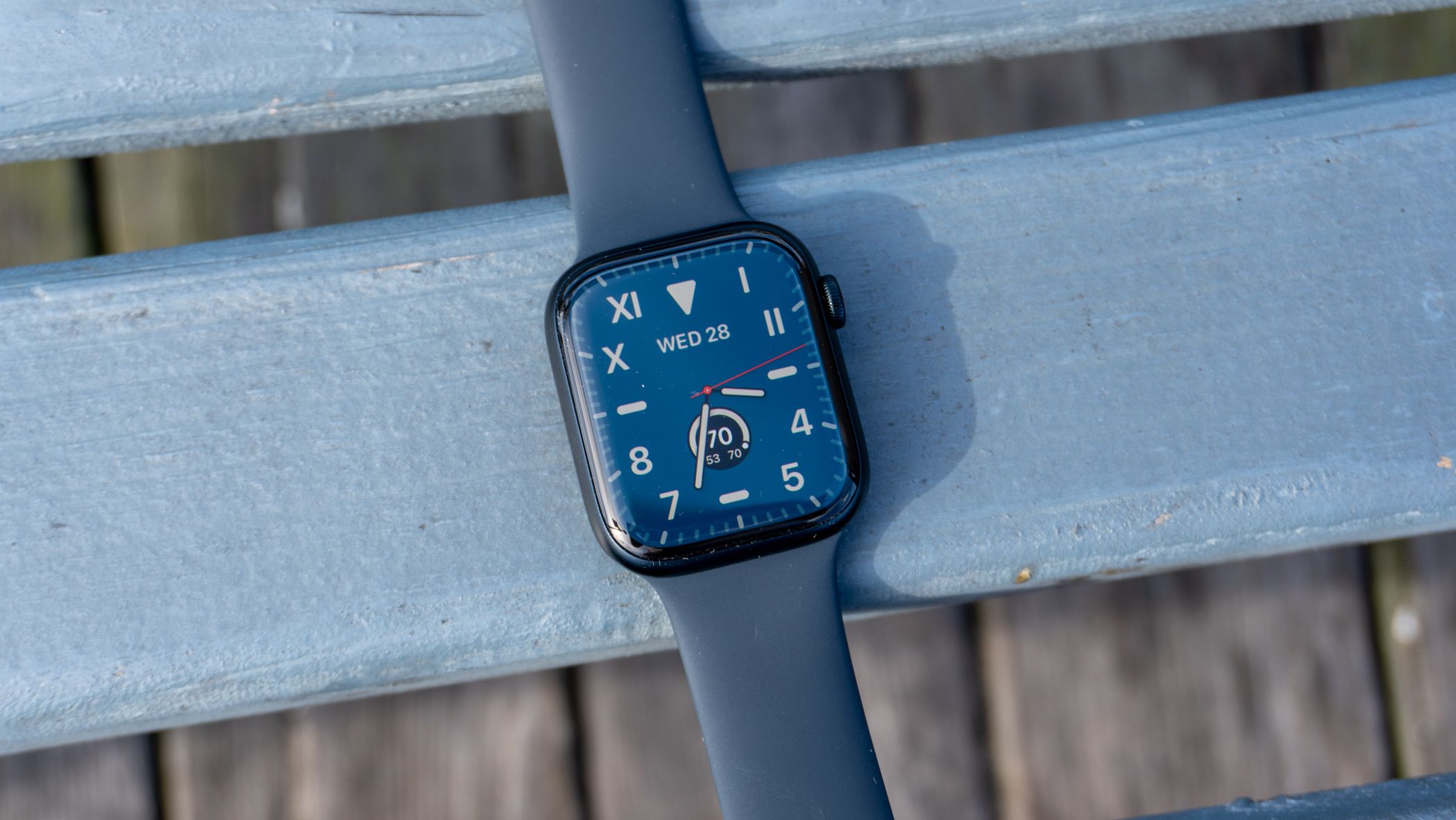
A lot of the new features on the Series 8 are thanks to watchOS 9, the latest version of the Apple Watch’s software. This year’s update is pretty chock-full of new features, and there’s a lot to like.
The new watch faces are terrific. I especially enjoyed using the Metropolitan face with its simplistic fonts and convenient complications. The new Playtime face is, well, very playful; a new Astronomy face can show you cloud coverage around the world; the new Portraits face adds pet support; background colors are now available on a few faces; and complications can now display richer information without growing in size.
Health gets an upgrade, with much more detailed stats available while you’re working out. For runners, Apple added a new Running Power feature that helps you stay at a level you can sustain, Running Form Metrics so you can get a better idea of how efficiently you run, more detailed maps and elevation stats and more. Those who regularly partake in multisport activities or triathlons will be happy to know that the watch can now automatically transition between swimming, biking and running.
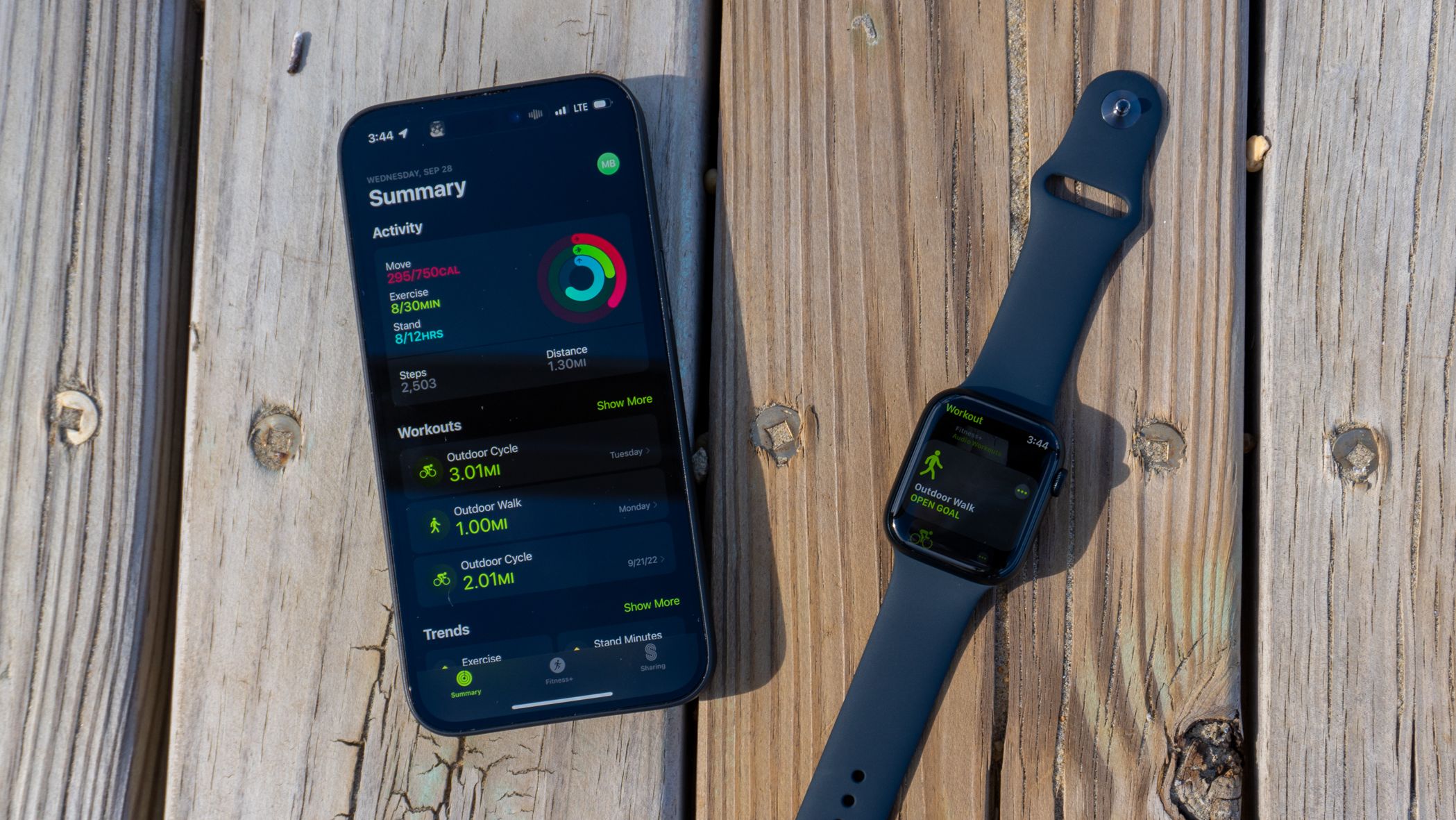
The Apple Watch can also help you keep track of your meds, remind you when to take them and log them. There’s also AFib History for people with atrial fibrillation, so you can see an estimate of how frequently your heart entered this arrhythmia.
My favorite new Health feature involves sleep tracking, which can now show you sleep stages. It’s a feature popular in other smartwatches like the Galaxy Watch 5 and Withings ScanWatch, where you can see a chart of the amount of time you spent in REM, Core or Deep sleep as well as when you were likely awake during the night. I found this very useful since lately I’ve been experiencing a lack of deep sleep and have used the data to influence new techniques in winding down at night. You also get a comparison chart with your sleep results from the past week, month or six months.
To help power through the night, the Apple Watch gets a new Low Power Mode with watchOS 9. It turns off things like the always-on display, heart rate notifications and “Start workout” reminders to help reduce battery drain. When your iPhone isn’t nearby, it also disables Wi-Fi and cellular connections. Combined with a pretty significant reduction in background processes, Apple touts that an extra 15 to 18 hours of power can be eked out of your watch on a single charge. I didn’t quite reach those numbers when using the feature, but it certainly helped to extend battery life by at least another five hours every day.
There’s a lot more in watchOS 9 as well like banner notifications, a new Calendar app, an updated Podcasts app, new language support in the keyboard, better app efficiency and new accessibility settings. Of course, you don’t have to upgrade to a Series 8 to get these new features since they’ll also roll out to watches dating back to the Series 4. Still, on fresh hardware with the fastest Apple Watch chip yet, watchOS flies, so those who want the best performance out of watchOS 9 will need to upgrade.
Performance remains excellent, and there are still plenty of health sensors
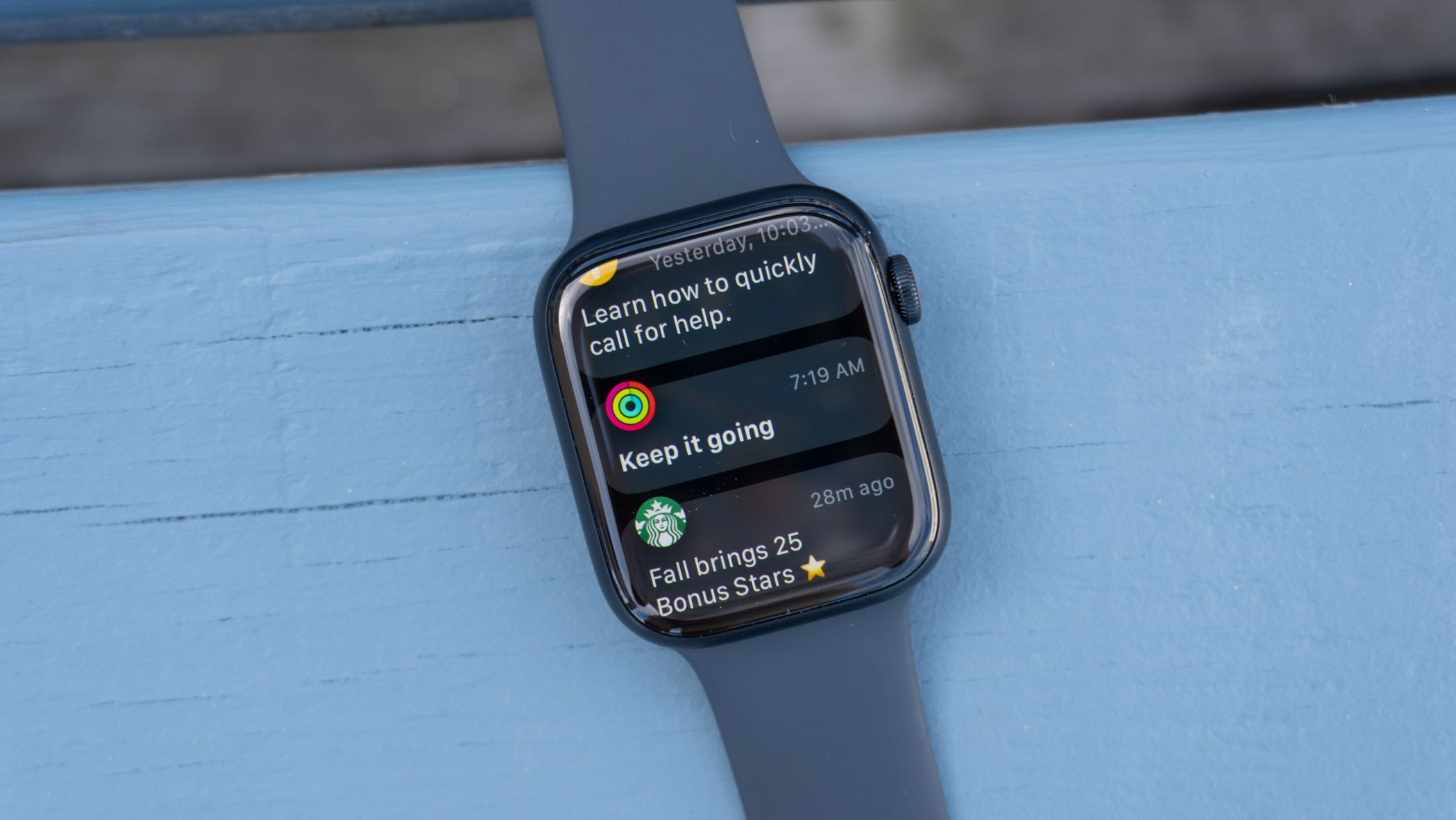
Speaking of performance, the Apple Watch Series 8 gets the new S8 chip, which you would assume is faster than last year’s S7. For the past few years, Apple hasn’t been in the business of marketing performance improvements between watches, instead prioritizing the new technologies each chip enables. This year, it’s the new temperature sensor, which I’ll talk about later.
If anything, the new S8 chip is 20% faster than the S4, which was in the Apple Watch Series 4 and first-generation SE. I only know this because the second-gen SE also has an S8 chip, and Apple quoted how much faster it would be than the older model on-stage during its event. Only users of older Apple Watches will notice a performance boost, but that’s not really a bad thing — the Apple Watch has been reliably speedy for years now, and that hasn’t changed with the Series 8.
Apps fly, fitness features are reliably responsive and multitasking is a breeze. There’s nothing here that indicates a lack of performance increase from Apple. It’s all just as fast and fluid as last year — once again, if it ain’t broke, don’t fix it.
In addition, the S8 carries all of the normal heavy lifting for the health sensors on the Series 8 as the Series 7. That means you’re still getting blood oxygen monitoring, one of the best heart rate monitors on the market and electrocardiogram (ECG) support. As you’d expect, all of these features work great, with solid accuracy and plenty of detail. You still can’t use the Apple Watch as a medical device, mind you, so keep in mind that data from these sensors should only be used for reference and sharing with medical professionals if you’re concerned about your health.
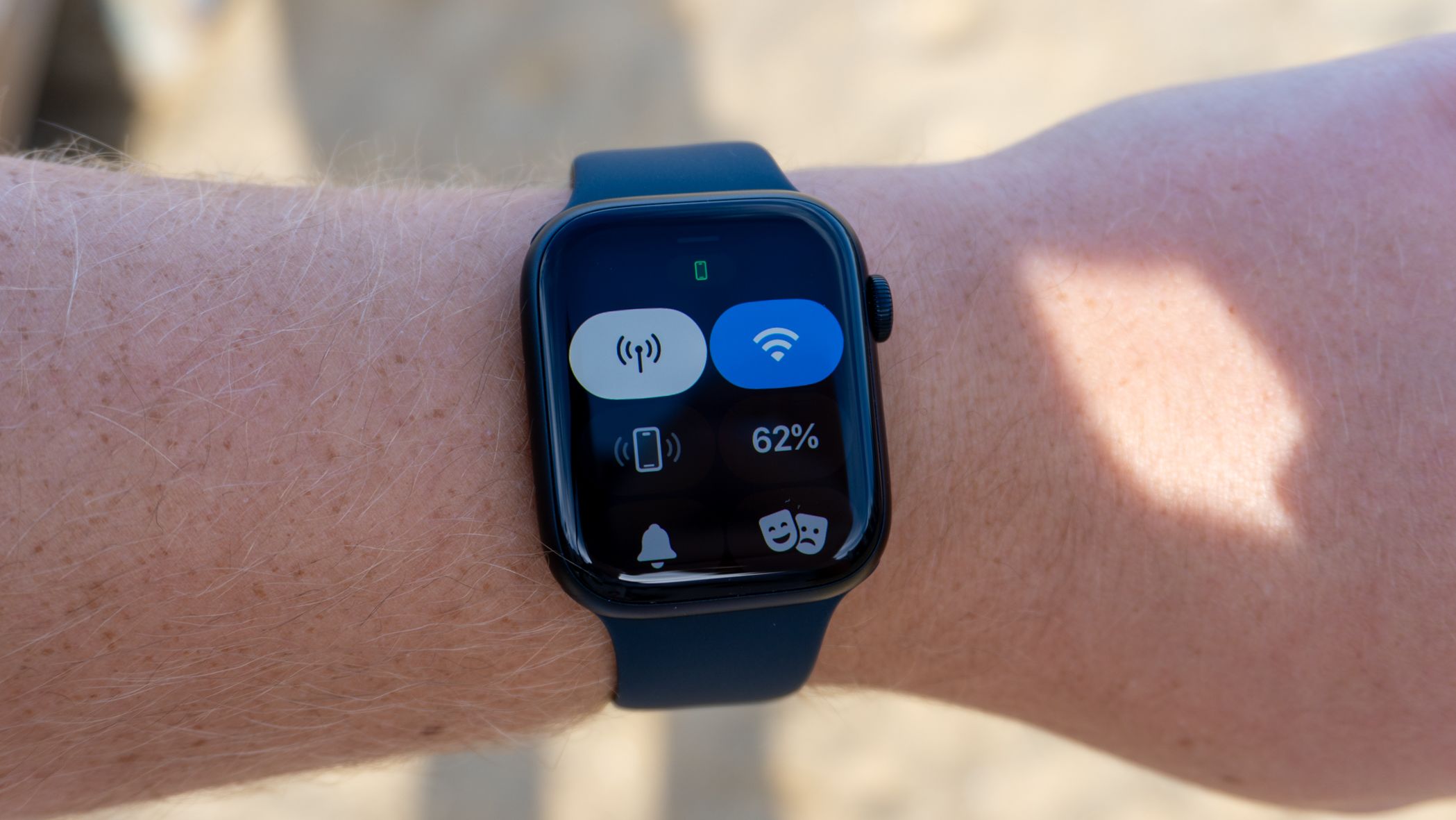
New on the Apple Watch Series 8 is Crash Detection, which appears to be one of the most advanced crash-detecting features available on a smartwatch.
The feature works by relying on a new three-axis gyroscope, a new g-force accelerometer with the “highest dynamic range in any smartwatch,” according to Apple, the microphone, barometer, GPS and an advanced sensor-fusion algorithm to figure out whether you’ve been in a car accident. It looks for things like cabin pressure changes, sudden speed decreases and sounds that are similar to those associated with a crash to make a determination.
If it detects you’ve been in an accident, your watch will give you an option to make an emergency call. If you remain unresponsive, emergency services will be automatically contacted and provide dispatchers with your location.
Obviously, I didn’t test this feature — which is also available on the entire iPhone 14 range — but it’s nice to have for peace of mind, just in case something does go wrong out on the road.
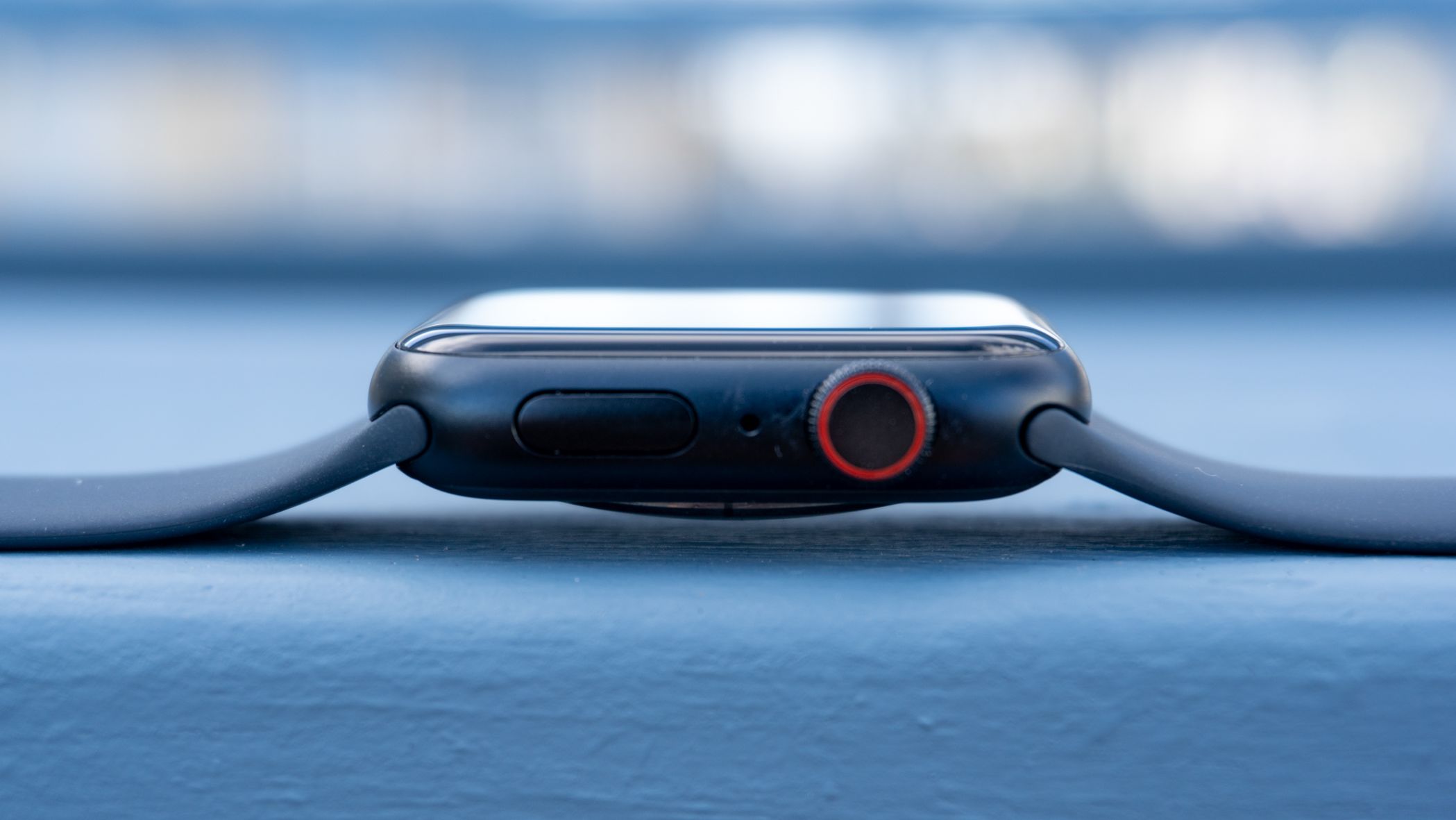
What’s perhaps the biggest new feature associated with the Apple Watch Series 8 is temperature sensing, thanks to a new sensor located at the bottom of the watch. There were rumors leading up to the Series 8’s unveiling that the sensor might be used to track your body’s temperature and potentially alert you if it thinks you’ve developed a fever, but as it turns out, the sensor is used for a lot less.
The marquee way temperature sensing is used is in cycle tracking, which lets you see a retrospective chart of when you likely ovulated, which helps in family planning. You’ll also get improved period predictions as well as notifications if your data shows a possible cycle deviation. All of this data is stored securely on your iPhone and can’t be accessed by anybody you don’t explicitly share it with, such as your doctor or health care provider.
I clearly didn’t test this feature, so the only way I used the temperature sensor during my review was when I went to sleep. Apple lets you track your wrist temperature so long as you track your sleep at night, and you have to do so for five days before you get any data on whether the readings are irregular or not. I did just that, and I was eventually able to see whether my wrist was above or below a baseline temperature.
This data isn’t very useful beyond your own reference. I suppose it’s helpful if you’re curious whether consuming certain foods or liquids could alter your temperature when you go to sleep, but beyond that, the charts you get don’t tell you much about your overall health.
And that’s really all the new temperature sensor does. Could Apple add more robust functionality in the future? Sure, but you should never buy a product based on what it could become. Unless family planning is a priority, temperature sensing is no reason to buy a Series 8 right now.
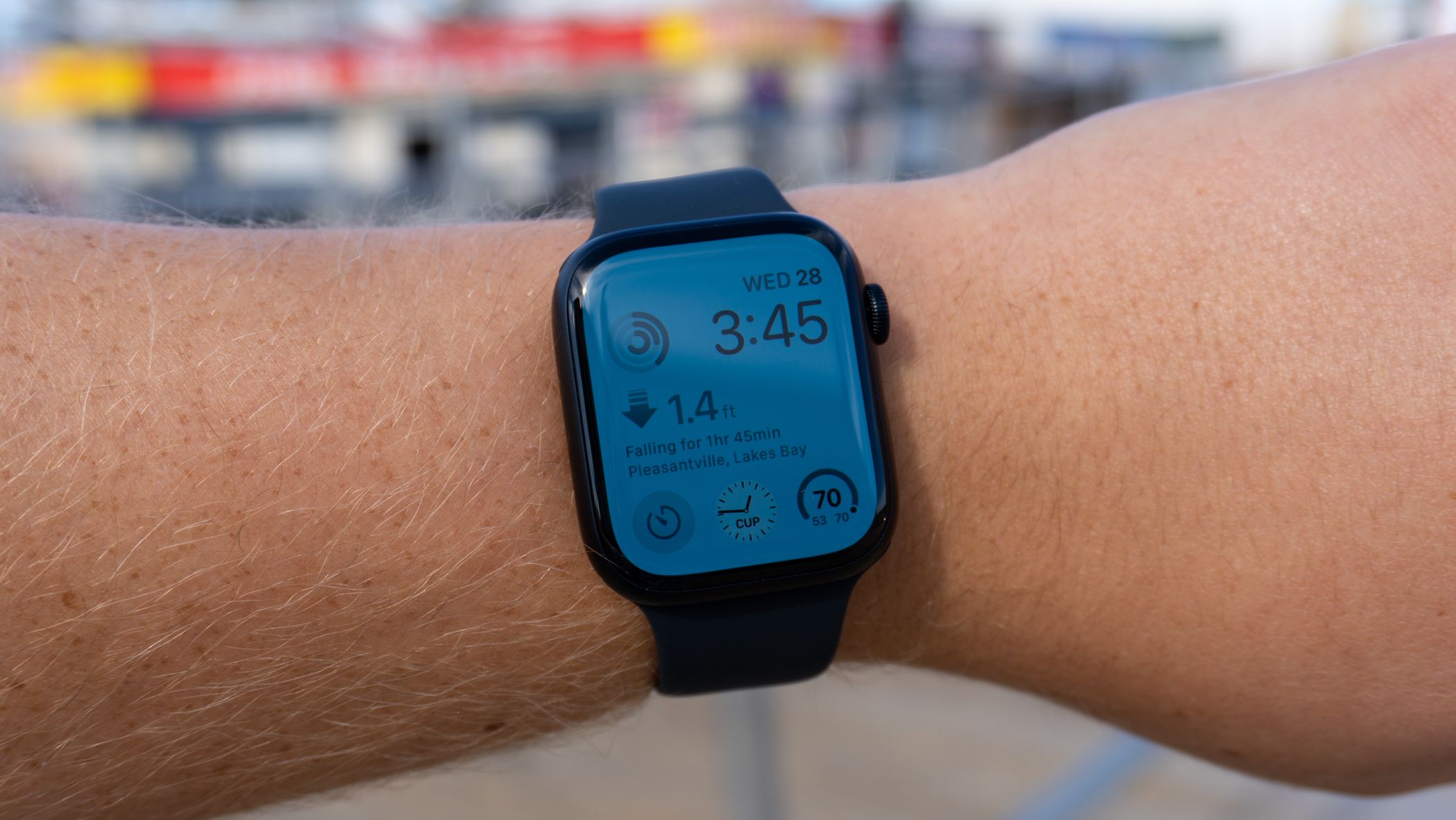
If there’s one area of the Apple Watch that needs improvement, it’s battery life. No, it’s not necessarily bad, but it could be better.
Day to day, I was able to get about 16 hours of usage on a full charge with the Series 8. That’s slightly below the 18-hour mark Apple claims you’ll reach, but it’s still plenty for a single day, and you can probably stretch it a bit more by using Low Power Mode. But it seems that every Apple Watch has sort of stuck to that formula — lasting a full day and maybe a bit more, but by no means reaching two or three days of usage like other watches can. That’s unfortunate given how long the Apple Watch has been on the market.
Fast charging does help a bit, since it gives you an easy way to ensure you’ll have juice to track your sleep at night (assuming you remember to charge it before you go to bed). I’ve been doing just that with my Series 8, taking it off about 45 minutes before I hit the sack and strapping it back on once I’m under the covers. I’ll then wake up with about 90% left, which is usually enough to get me through the rest of the day with mixed use (a few phone calls, workout tracking and playing some music on my AirPods).
Still, while you can get in the flow of adapting to the Series 8’s battery life, it’s unfortunate that the watch can’t get in the flow of adapting your usage habits and last a little longer on a charge.
|
|
||
|---|---|---|
| Compatibility |
iOS |
Android |
| Display options |
45mm, 41mm |
44mm, 40mm |
| Weight |
1.36 to 1.49 ounces |
1 to 1.18 ounces |
| Water resistance |
50 meters, IPX6X |
50 meters, IP68 |
| Battery life (rated) |
18 hours |
40 hours |
| Key health and safety features |
Blood Oxygen, ECG, Temperature Sensing, Cycle Tracking, Crash Detection |
BioActive heart rate sensor, Advanced sleep coaching, Blood Oxygen, BIA sensor, Auto Workout Tracking |
| Color options |
Midnight, Starlight, Silver, Red (Aluminum); Graphite, Silver, Gold (Stainless Steel) |
Graphite, Silver, Pink Gold |
| Price |
From $399 |
From $279 |
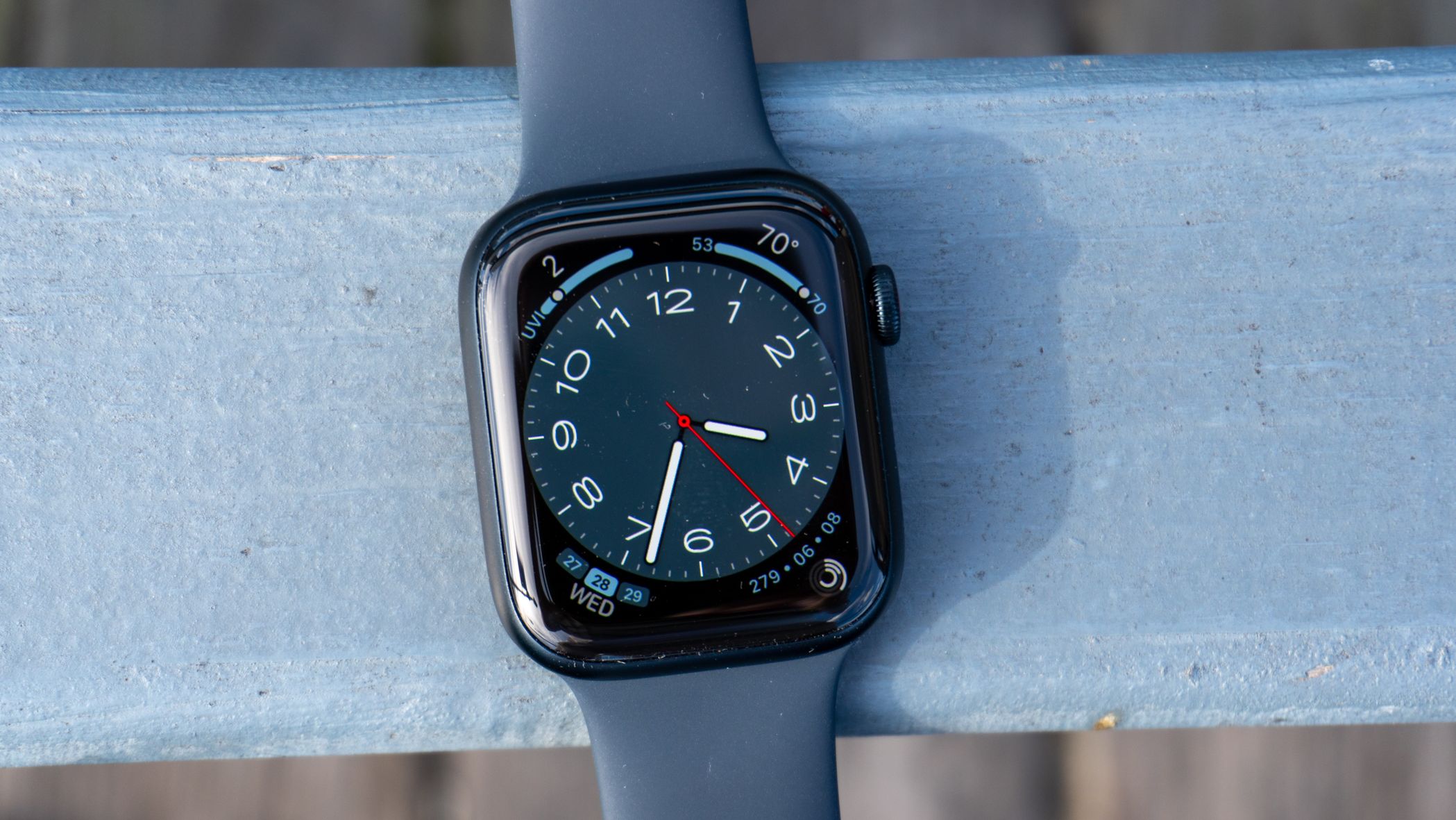
This one is easy: If you own an Apple Watch Series 7, Series 6 or even a Series 5, you really don’t need the Series 8. Series 7 and 6 users won’t notice much of a difference at all, and while Series 5 users might be enticed by things like blood oxygen monitoring, it’s still not a life-changing leap.
Over the past few years, Apple has made each Apple Watch incrementally better, and waiting long enough to upgrade will lead to a much better return on investment. I’m personally coming from a Series 3, and using the latest model has proven to be an excellent experience. The bezels are thinner, the screen is bigger, performance is far superior and all of the new health features are great. You’ll likely have the same experience coming from a Series 4.
Of course, the second-generation Apple Watch SE is also a solid upgrade for anyone with an older Apple Watch. It shares the same S8 chip as the newer model, Crash Detection and watchOS 9. If you can live without an always-on display, blood oxygen monitoring and slightly chunkier bezels around the screen, it’s hard to argue with the value you get for $249.
More recent Apple Watches are too similar to the Series 8 to justify an upgrade, and Apple’s newest features like temperature sensing and Crash Detection will be nicer perks when there’s a few more to tack on to the list in the next couple of years. For now, the Series 8 is simply a better version of what’s long been the best smartwatch, and it’s deserving of a place on the wrists of those who don’t already have an Apple Watch or are coming from one that’s four to five years old.


